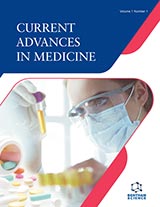Abstract
Fungal endophytes are a group of fungi that reside in plant tissues and show
a symbiotic relationship with the host plants. They protect against pathogens and
increase food availability without causing any harmful effects on the host plant. Fungal
endophytes are known to produce a wide range of bioactive compounds with several
biological activities, including neuroprotective effects. Neurodegenerative disorders
lead to miscommunication between nerve cells, damage or loss in structure and
function of the central nervous system (CNS) or peripheral nervous system (PNS).
Reactive oxygen species, neuroinflammation, protein degradation or aggregation,
familial history, mutation in mitochondrial genes, and aging contribute to
neurodegenerative disorders. Plant-associated fungal endophytes produce bioactive
compounds, which show anti-neuroinflammatory, antioxidant, and anti-cholinesterase
activities. Several pro-inflammatory (TNF-α and NF-κB) and depressant (serotonin,
dopamine, and noradrenaline) molecules or neuronal signaling pathways leading to
neurodegenerative disorders are known to be inhibited or down-regulated by fungal
endophyte-derived bioactive compounds. Therefore, bioactive compounds produced
from fungal endophytes could be a promising approach to treating various health ailments. The present chapter discusses selected fungal endophyte-derived potential
bioactive compounds with neuroprotective effects for managing neurodegenerative
disorders.






















